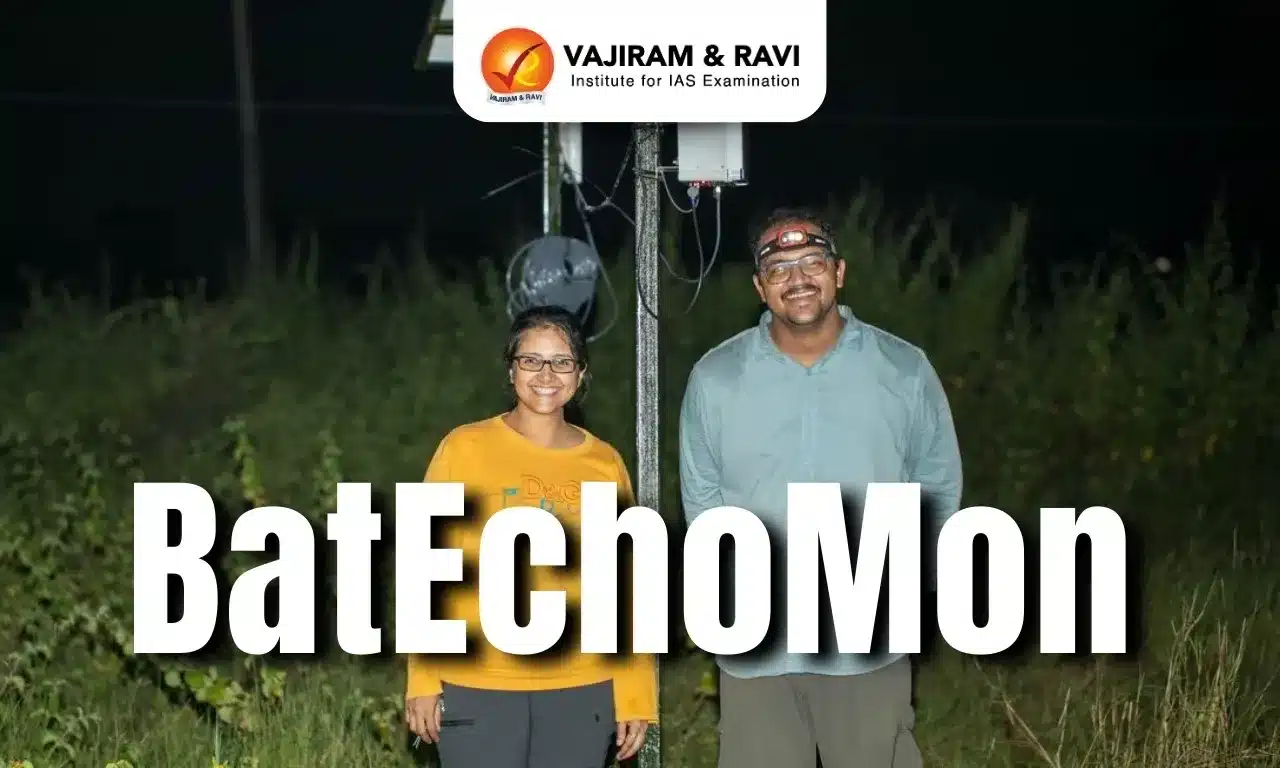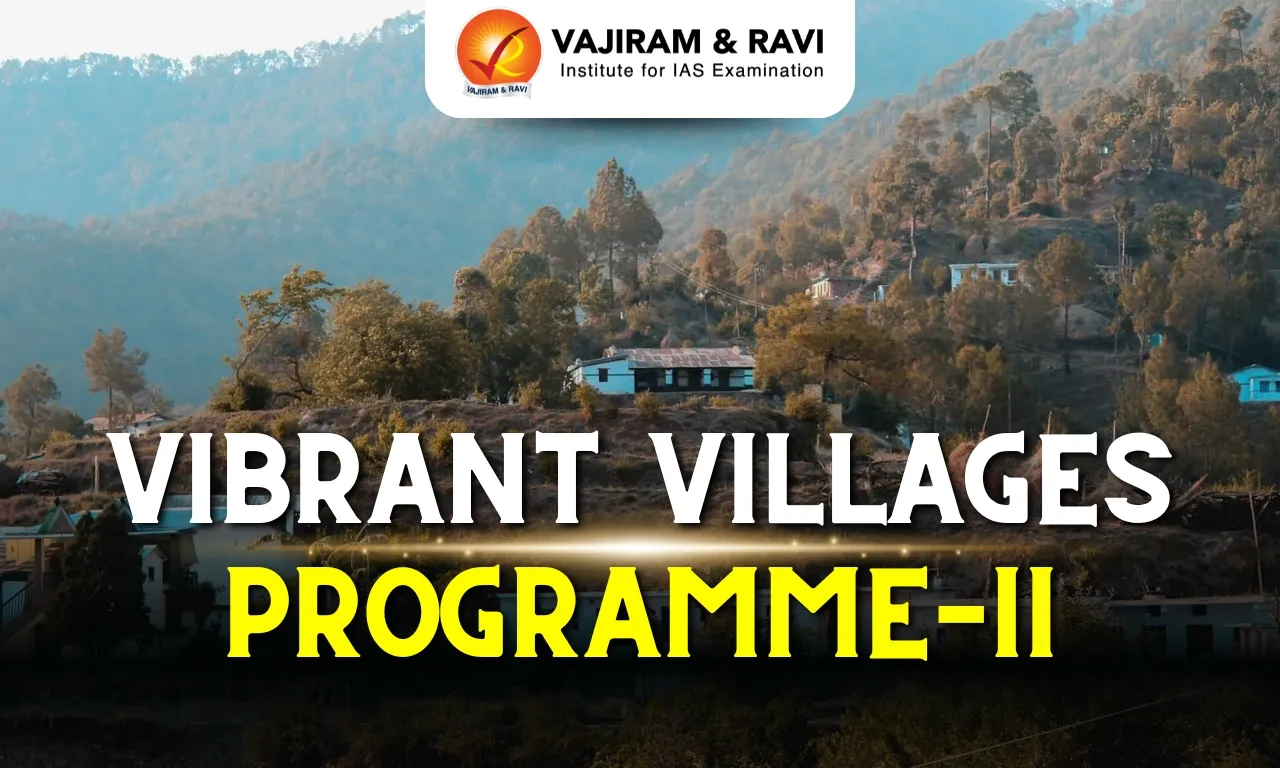BatEchoMon Latest News
Recently, India’s First Automated Bat Monitoring and Detection System was created by the Indian Institute for Human Settlements (IIHS), Bengaluru.
What is BatEchoMon?
- BatEchoMon stands for “Bat Echolocation Monitoring”. It is India’s first automated, real-time bat monitoring and detection system.
- The system was developed by bat biologist Kadambari Deshpande and engineer Vedant Barje under the guidance of Jagdish Krishnaswamy.
- It was designed as part of the Long-Term Urban Ecological Observatory at the School of Environment and Sustainability, Indian Institute for Human Settlements (IIHS), Bengaluru.
What Does BatEchoMon Do?
- BatEchoMon autonomously detects, records, analyses, and classifies bat echolocation calls in real-time — something that previously took researchers months to do manually.
- It includes:
- An ultrasonic microphone using a modified AudioMoth device.
- A Raspberry Pi microprocessor to process and classify calls.
- A solar-powered battery for power and a Wi-Fi unit for data transmission.
- The device activates automatically at sunset and continuously records audio through the night.
- It uses a convolutional neural network (CNN) algorithm to distinguish bat calls from other sounds and to classify them based on peak frequency and call structure.
- The output includes:
- Spectrograms (visual frequency-time plots of bat calls),
- Audio files of bat calls,
- Species-specific statistical data showing call frequency and timing.
BatEchoMon FAQs
Q1. What is BatEchoMon?
Ans. A bioacoustic monitoring system using AI to detect and classify bat species via their echolocation calls, aiding conservation efforts.
Q2. How does BatEchoMon help biodiversity?
Ans. Tracks bat populations (key pollinators/pest controllers), identifies endangered species, and maps habitat changes due to urbanization/climate.
Q3. What tech does BatEchoMon use?
Ans. Combines ultrasonic sensors, machine learning algorithms, and GPS to create real-time bat activity databases.
Source: TH
Last updated on February, 2026
→ UPSC Notification 2026 is now out on the official website at upsconline.nic.in.
→ UPSC IFoS Notification 2026 is now out on the official website at upsconline.nic.in.
→ UPSC Calendar 2026 has been released.
→ UPSC Final Result 2025 is expected to be released in the second week of April 2026.
→ Check out the latest UPSC Syllabus 2026 here.
→ Join Vajiram & Ravi’s Interview Guidance Programme for expert help to crack your final UPSC stage.
→ UPSC Mains Result 2025 is now out.
→ UPSC Prelims 2026 will be conducted on 24th May, 2026 & UPSC Mains 2026 will be conducted on 21st August 2026.
→ The UPSC Selection Process is of 3 stages-Prelims, Mains and Interview.
→ Prepare effectively with Vajiram & Ravi’s UPSC Prelims Test Series 2026 featuring full-length mock tests, detailed solutions, and performance analysis.
→ Enroll in Vajiram & Ravi’s UPSC Mains Test Series 2026 for structured answer writing practice, expert evaluation, and exam-oriented feedback.
→ Join Vajiram & Ravi’s Best UPSC Mentorship Program for personalized guidance, strategy planning, and one-to-one support from experienced mentors.
→ Check UPSC Marksheet 2024 Here.
→ UPSC Toppers List 2024 is released now. Shakti Dubey is UPSC AIR 1 2024 Topper.
→ Also check Best UPSC Coaching in India




















